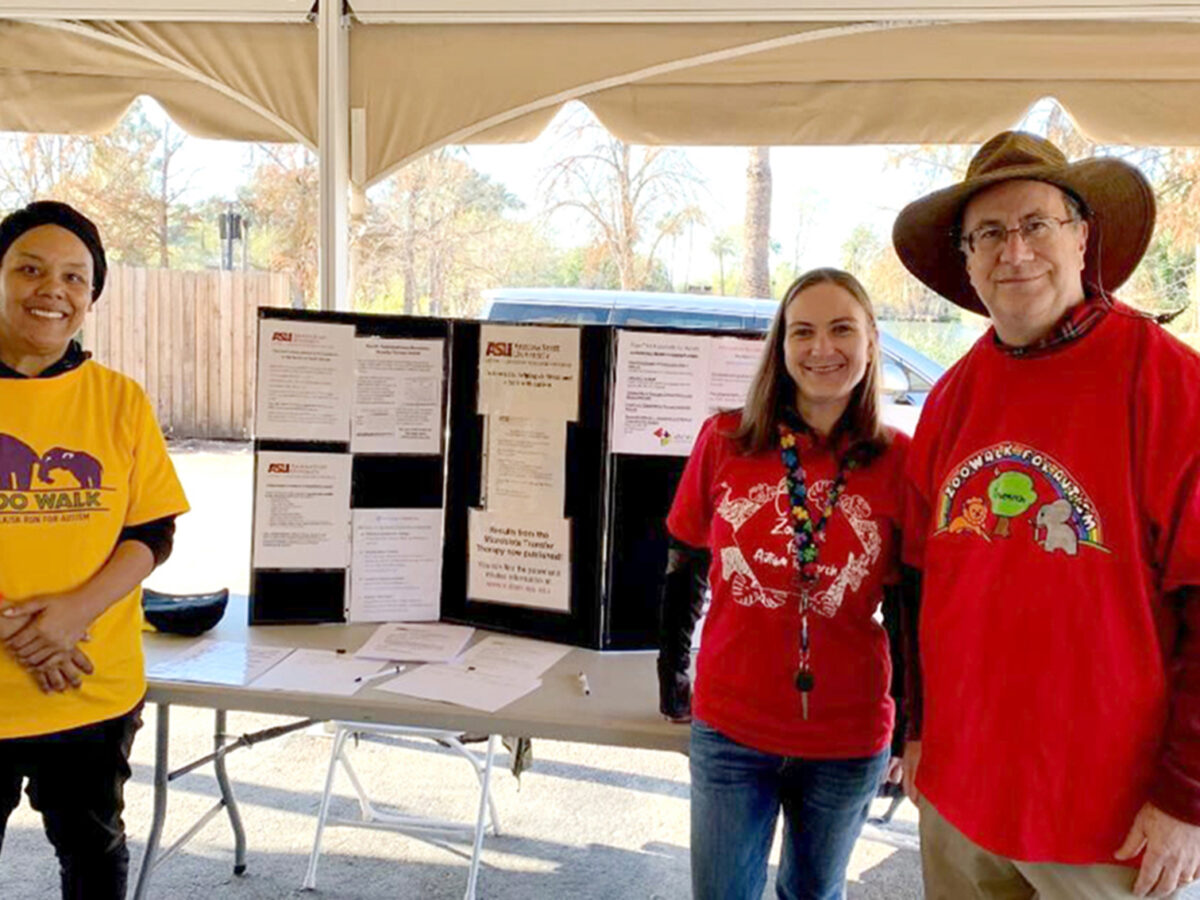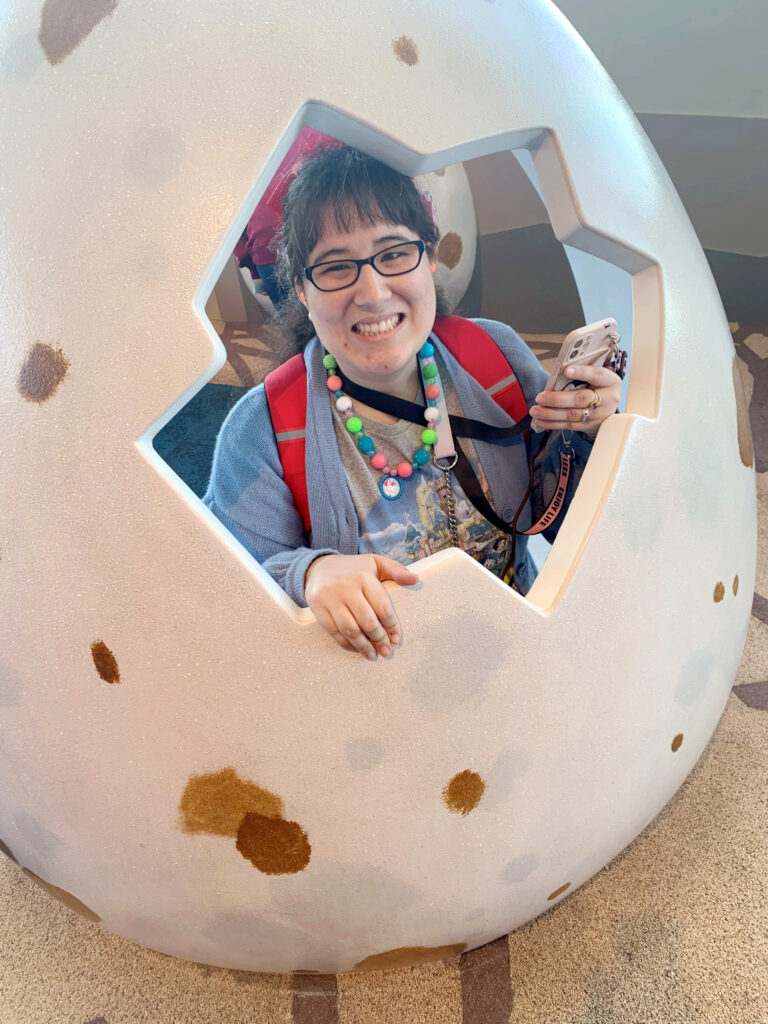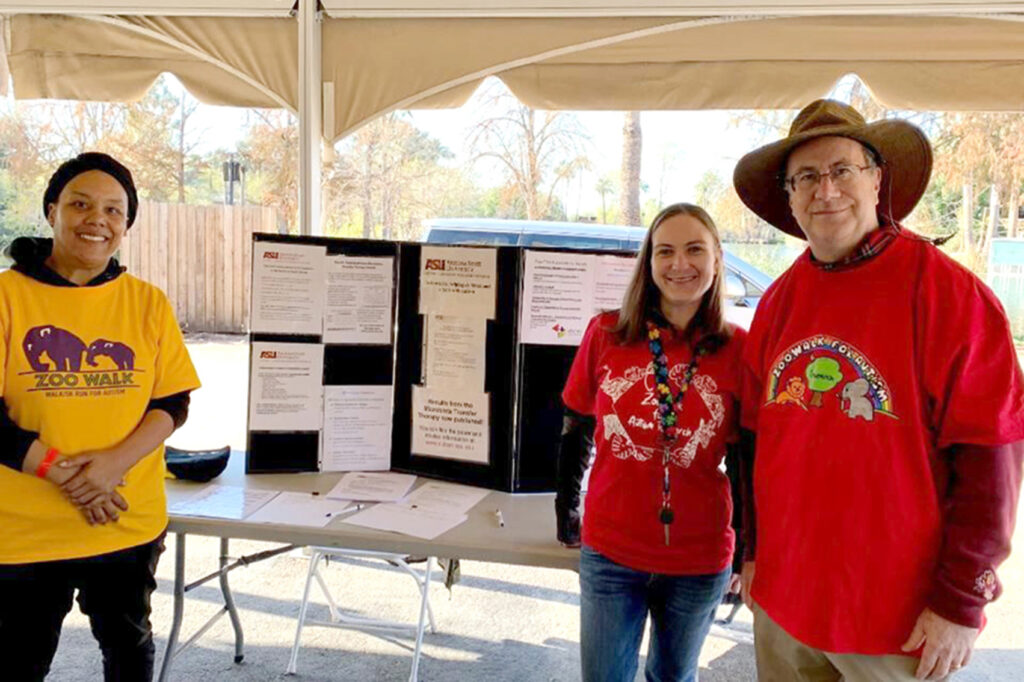James Adams ’80: Searching for a cure

Pioneering researcher gives the autism community reason to hope
For parents of children with autism, hope is everything, but it can be tough to come by. Autism spectrum disorder (ASD) has remained a chronic ailment since its conceptualization in the early 20th century. A definitive cause is still unknown, and few options exist to treat the one in every 36 children in the U.S. living with autism. The diagnosis can be heartbreaking.
But Dr. James Adams ’80 is working hard to give the autism community a reason for hope. As director of the Autism/Asperger’s Research Program at Arizona State University, Adams has spent the last 25 years pioneering research with a focus on the disorder’s biological causes and treatments. His determination was born of his own despair after his oldest daughter’s autism diagnosis in 1994.
“It was just devastating,” Adams says. “To be told that she had a lifelong, incurable condition. At age 2½, she had an IQ of 32. She had no spoken language and did not respond to her name. We were told that it was just a matter of time until we would have to place her in an institution. They knew nothing.” Adams, an accomplished materials engineer, had spent his career solving environmental problems: designing solar cells and fuel-efficient car engines. “Nothing you can do” was not good enough for him. He believed there must be a way to improve his daughter’s life.
Around 2000, Adams’ wife attended conferences that explored what were, at the time, more radical ideas like nutritional therapy for managing ASD symptoms, which include health, social and behavioral challenges, as well as significant gastrointestinal problems.
“I thought, we’ve known about vitamins for 50 years,” Adams says. “How could it be possible that kids with autism could be deficient in vitamins?” But once he read the research, he understood the potential. This became the framework for his first study, designed to gauge vitamin deficiencies in children with autism.

Five more studies followed, with great success. Adams then used the results to formulate a comprehensive multivi-tamin and mineral supplement that would improve the nutritional status of autistic children. In 2015, he founded the Autism Nutrition Research Center, a non-profit dedicated to pioneering research in dietary and nutritional support for ASD. The organization now distributes his supplement, called ANRC Essentials, around the world.
“It is not a cure,” Adams says. “But it helps about three-quarters of them in many ways, including improved language, cognition and social interaction.”
Through those early studies, Adams zeroed in on the gut microbiome-brain connection. “We’ve discovered now that more than 80 percent of kids with autism have serious bacterial and/or yeast infections in their gut that could last for years, even decades,” Adams says. “These infections produce toxins — such as paracresol, a bacterially derived metabolite — that affect not just gut symptoms but brain and body function by poisoning the key neurotransmitters, like dopamine and serotonin, involved in mood, learning and memory. It has been truly revolutionary. I won’t say it’s the cause of autism, but I will say it is a major contributing factor.”
What Dr. Adams cannot say just yet, but what the autism community is eager to find out: Could these bad gut bacteria, somehow introduced to a baby’s microbiome during birth, be one reason autism develops in a segment of the population? And could these toxins also be contributing factors for other ailments that develop later in life like Parkinson’s disease, or mood disorders like anxiety and depression?
“We know that when you administer these toxic metabolites to mice, it causes autistic symptoms,” Adams says. “But when you treat the mice with microbiotic transplants from a healthy mouse, it cures them.”

His team has been doing human trials of Microbiota Transplant Therapy (MTT). As of March, four clinical trials had been run, with the fifth and sixth under way.
MTT involves taking gut bacteria from super-healthy donors, purifying it, and giving it to children with autism in either pill or capsule form. Adams describes it as akin to taking a probiotic, except a probiotic typically has only a few species of gut bacteria; MTT provides more than 400 — all the species that would be present in a healthy gut, Adams says.
“We’ve seen 80 percent reductions in gastrointestinal problems — diarrhea, constipation, pain, reflux,” Adams says, “and major improvements in core autism symptoms such as language, social interactions and behavior.”
Parents report that their children are happier, with a reduction in the anxiety, irritability and depression that often come with autism. A federal grant allowed Adams to repeat the study with adults who have had gastrointestinal and autism symptoms for 20, 30, 40 years. Their improvements were similar, Adams says.
In 2023, Adams co-founded Gut-Brain Axis Therapeutics Inc. to achieve Federal Drug Administration approval of MTT. The company is funded by more than 80 families — parents and grandparents of autistic children and adults who believe progress is possible. They need to raise $20 million for one final study.
In January, Adams’ gut-toxin research led to the release of a urine test for diagnosing autism, produced by Autism Diagnostics LLC, a commercial company he founded. Viable for children as young as 2, it measures the amount of toxic metabolites present in a sample. The test is awaiting F.D.A. approval in the U.S. but is available through a firm based in the U.K.
Adams is still pushing for progress, but he has found peace at home with his wife and three children.
“What matters really for people is not how successful we are financially or intellectually,” he says. “But are you happy with your life? Do you enjoy the work you do? My daughter is able to do meaningful work. She is a very loving person. What matters most to me is her health and happiness.”
This article was originally published in the spring 2025 issue of The Exeter Bulletin.